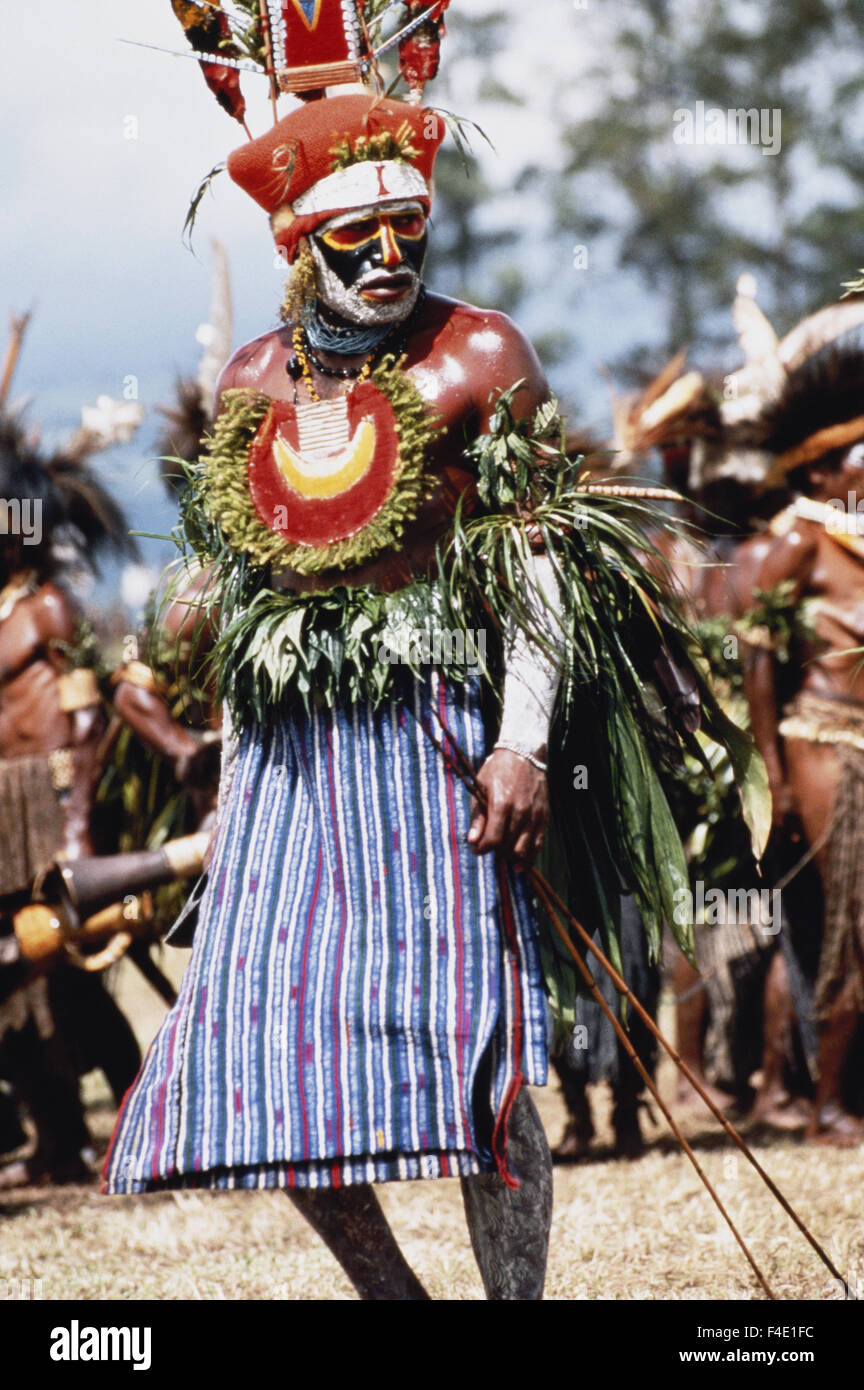
Papua New Guinea, Native man wearing traditional clothing. (Large format sizes available Stock
RM FJ6EJ5 - Local woman wearing traditional dress Gingala at Dregerhafen, Papua New Guinea. RM 2H5WR1T - Bark Cloth from Papua New Guinea. A mourning dress for women of beaten and painted tree bark.The cloth is painted with a dragon-like figure, five pairs of bird-like heads, snakes and stars.

A stunning Papua New Guinea dress with traditional designs. PapuaNewGuinea Papua New Guinea
The national costume of Papua New Guinea would have to the Meri Blouse, Lap Lap and Bilum. Meri Blouse: (Meri=Woman) A loose, casual shirt worn by woman. Lap Lap: Sarong worn by Men and Women..

Fur Costumes in Papua New Guinea Editorial Image Image of skirt, asia 72223835
Dec 17, 2013 Physically, papua's traditional clothing is skirt-type looking made of dried palm leaves or coconut fiber. There are birds feather used as accessories for the bracelet and necklace. They usually used paradise bird feathers as accessories for their clothing. Uniquely, Papua's traditional clothing is not made of cloth.

Pin on Papua New Guinea
There are always dilemmas around preserving age-old cultural traditions. One of the difficulties in safeguarding the unique practices and languages of the many tribal groups in Papua News Guinea is that their ritual dress relies heavily on indigenous birds, plants, and animals.. In times past, the people living in small, relatively isolated clusters in the Papua New Guinea Highlands painted.

Dancing Papuans in Papua New Guinea on a Traditional Holiday in Mount Hagen in National Clothes
Sandro Is any place on the planet less familiar to Americans than heavily forested, mountainous, linguistically complex, faraway Papua New Guinea? The images on these pages document just a.
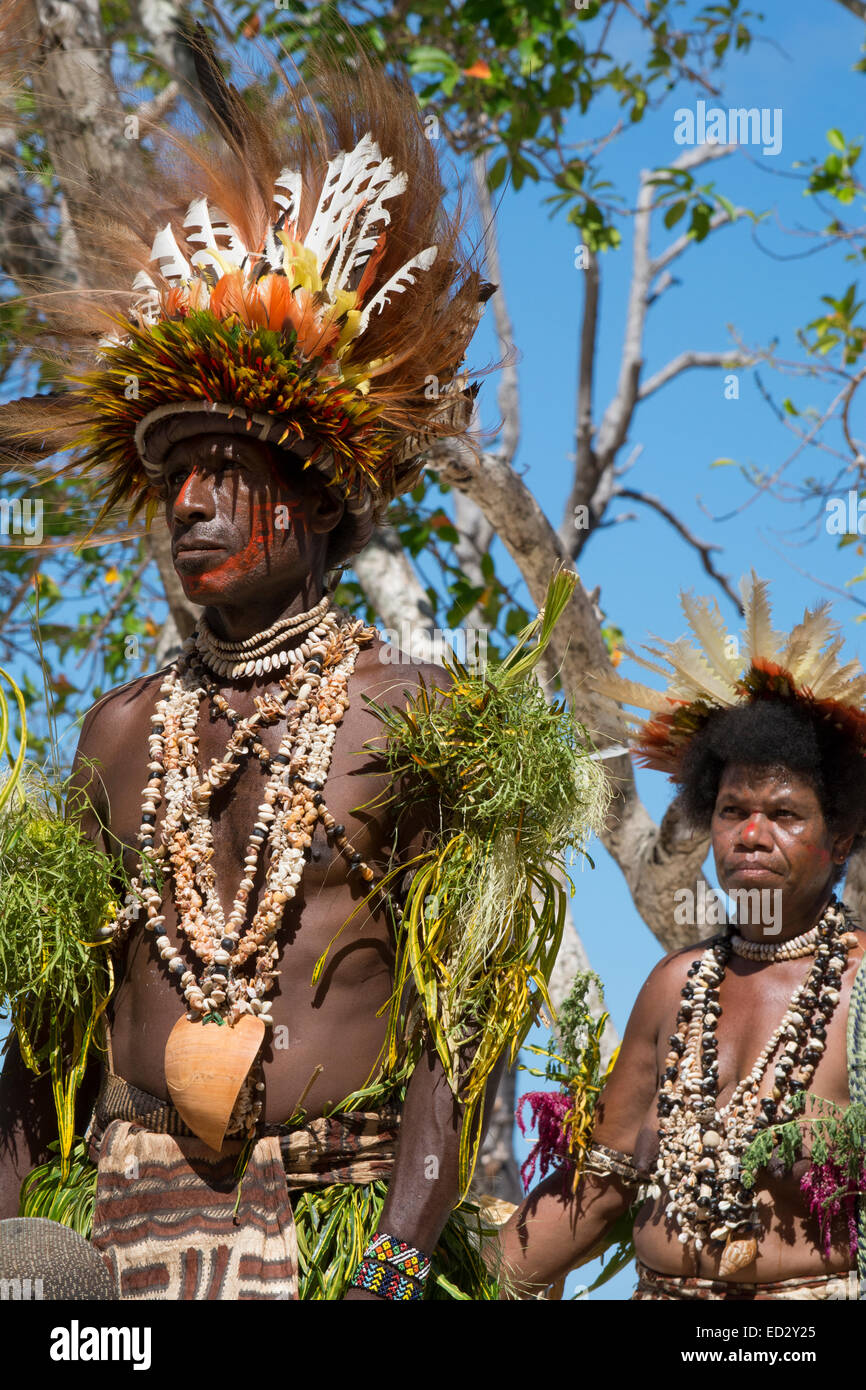
Melanesia, Papua New Guinea, Tufi. Traditional singsing dance with villagers dressed in
For women in Papua New Guinea, the 'meri blouse' is commonly accepted as the national dress for women. It can be worn on its own or over a simple apron loincloth (laplap) or skirt. It was the main attire for women in the 50s, 60s and 70s.
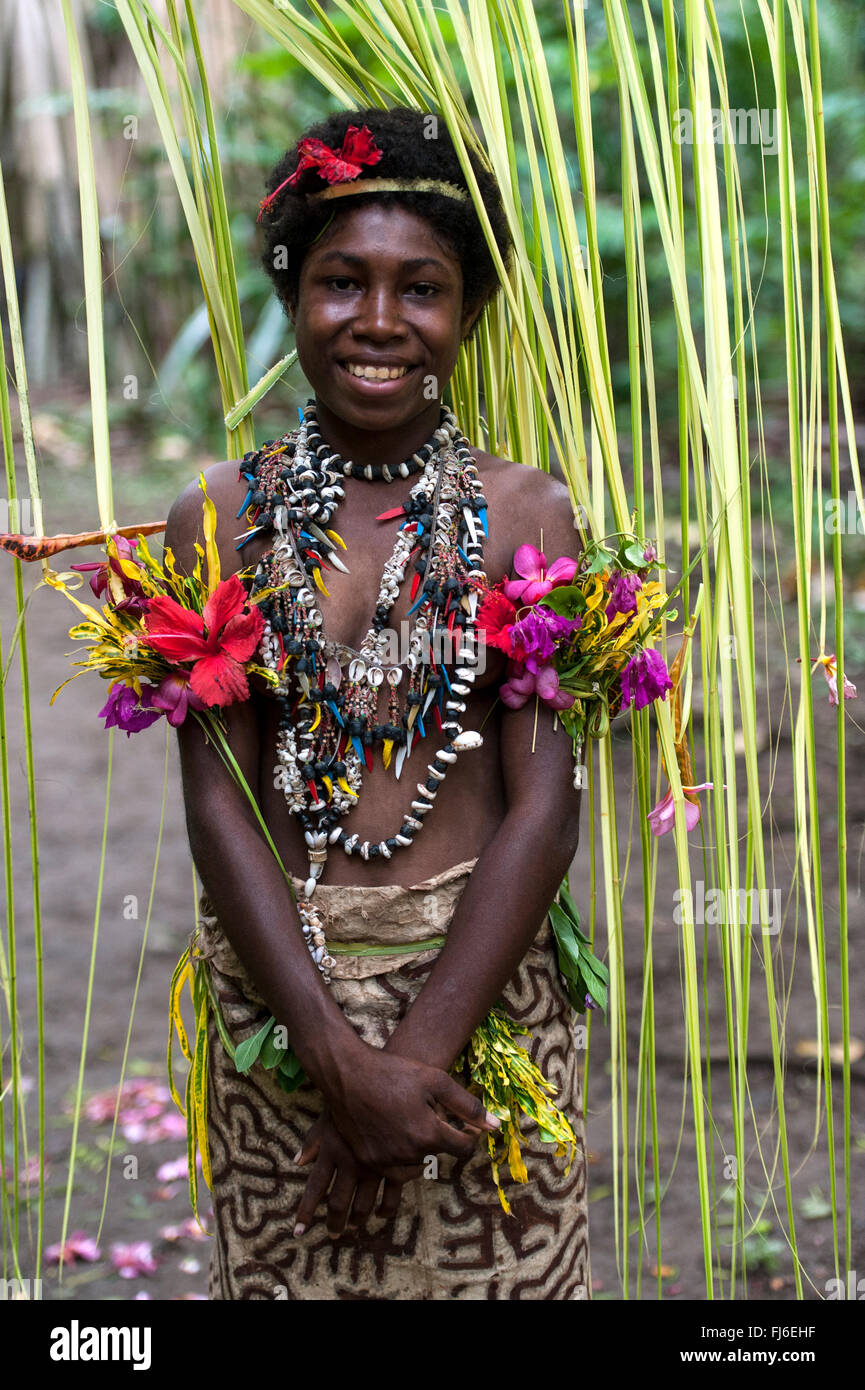
Traditional dress papua new guinea hires stock photography and images Alamy
Best Time To Go Holiday Types Reviews Culture & customs in Papua New Guinea Physically remote and still very isolated, Papua New Guinea is one of the least explored countries in the world, both culturally and geographically. This means its cultural life and customs have been allowed to flourish untainted by outside influence for centuries.

Costume Traditionnel En PapouasieNouvelleGuinée Image stock éditorial Image du coquillage
Playlist Enlarge this image A boy sits next to cooking fire at a Papua New Guinea village. Many villages re-create traditional dress and customs to cater to tourists and their search for an.

Woman in Traditional Costume in Papua New Guinea Editorial Photo Image of papua, hagen 71957136
BARKCLOTH OF THE MAISIN PEOPLE IN PAPUA NEW GUINEA. Anna-Karina Hermkens 2005, volkenkunde.nl For the Maisin people, living along the coast of Collingwood Bay (Oro Province in Papua New Guinea), barkcloth, or tapa as it is locally called, is important.
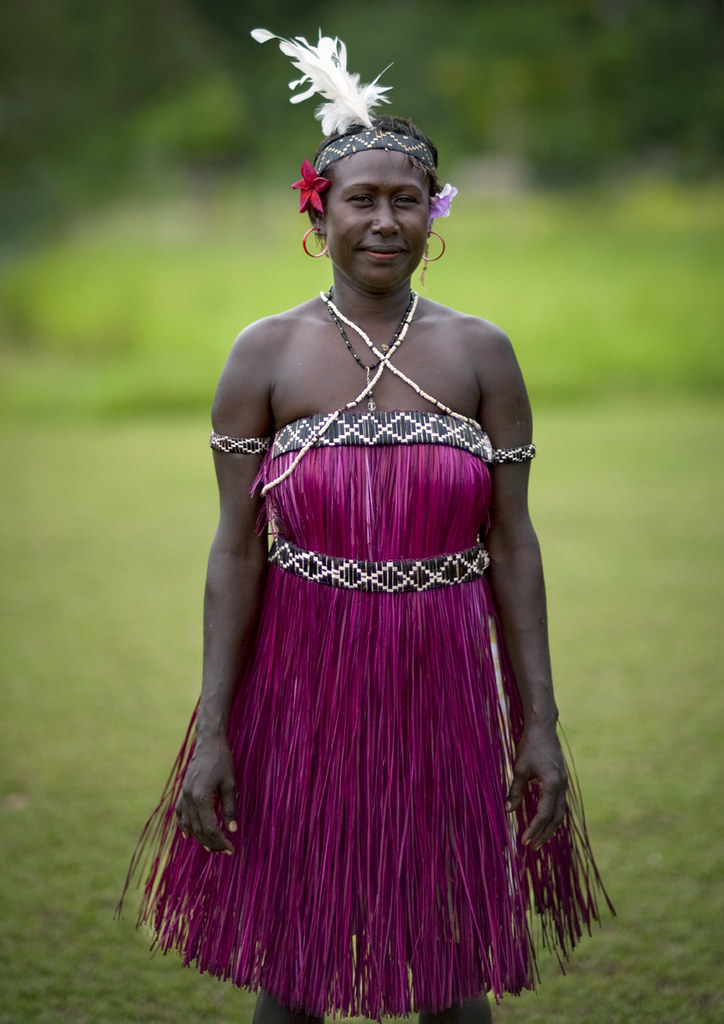
Bougainville island traditional dress Papua New Guinea Flickr
Asaro Mudmen at a Port Moresby cultural show. The "Mudmen" of Papua New Guinea's Asaro tribe, also known as the Holosa, are those who wear a traditional costume centered around masks made of mud. They live nearby the village of Goroka in the Eastern Highlands Province of Papua New Guinea. [1]
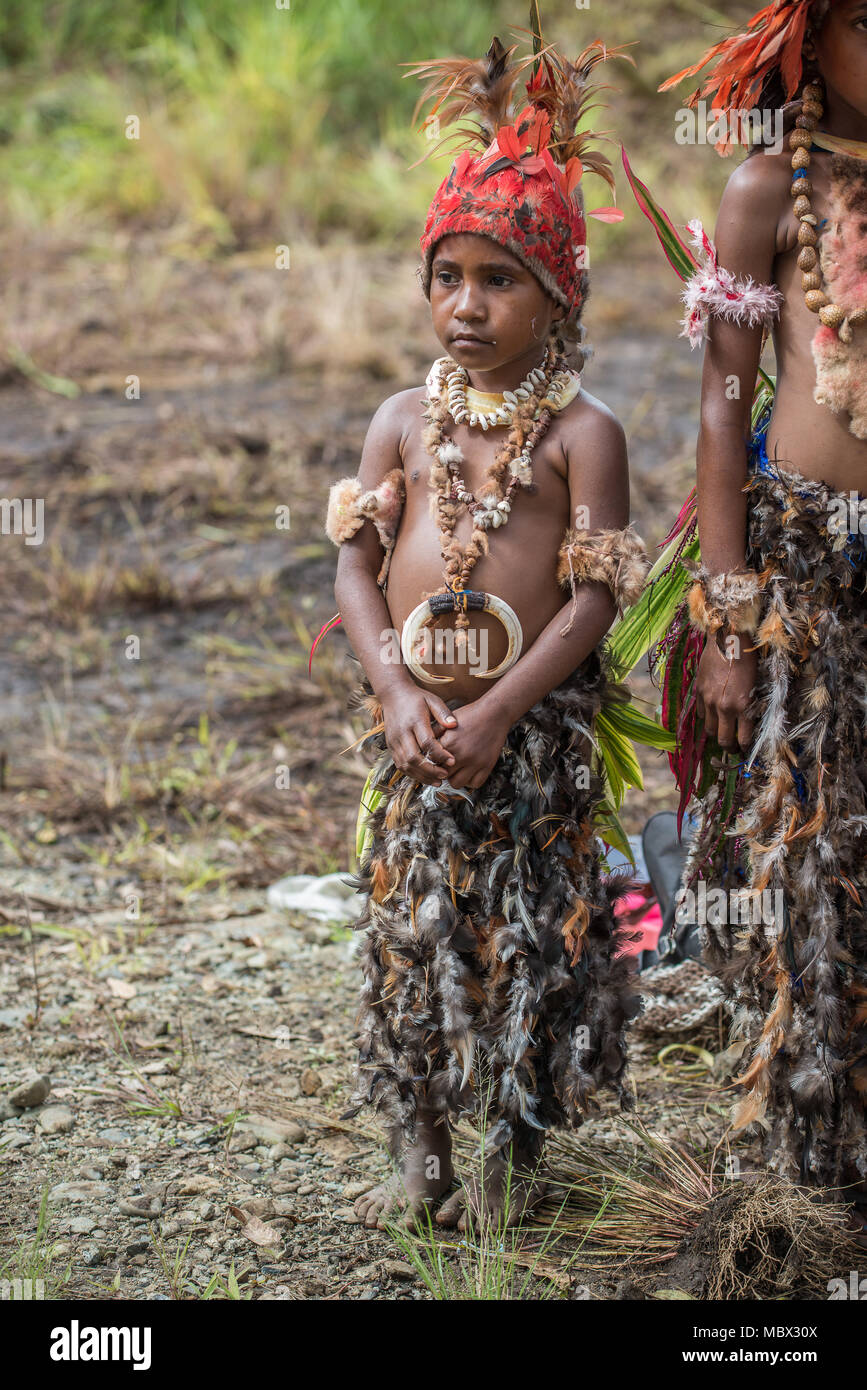
A standing young girl in traditional feathers costume and headdress, Mount Hagen Cultural Show
The Mud Men belong to the Melpa, a tribe based around the unlovely city of Mount Hagen in central Papua New Guinea's Western Highlands Province. Melpa customs are unique; what happens here differs from life in the next valley, or along the coast.

Pin on PAPUA NEW GUINEA TRADITIONAL DRESSING
Demography. The 1990 census showed a population of 3,761,954. Over half the population was under age 20. With an annual growth rate of 2.3 percent, the population topped four million by 1992 and is expected to grow to more than five million by the year 2000.
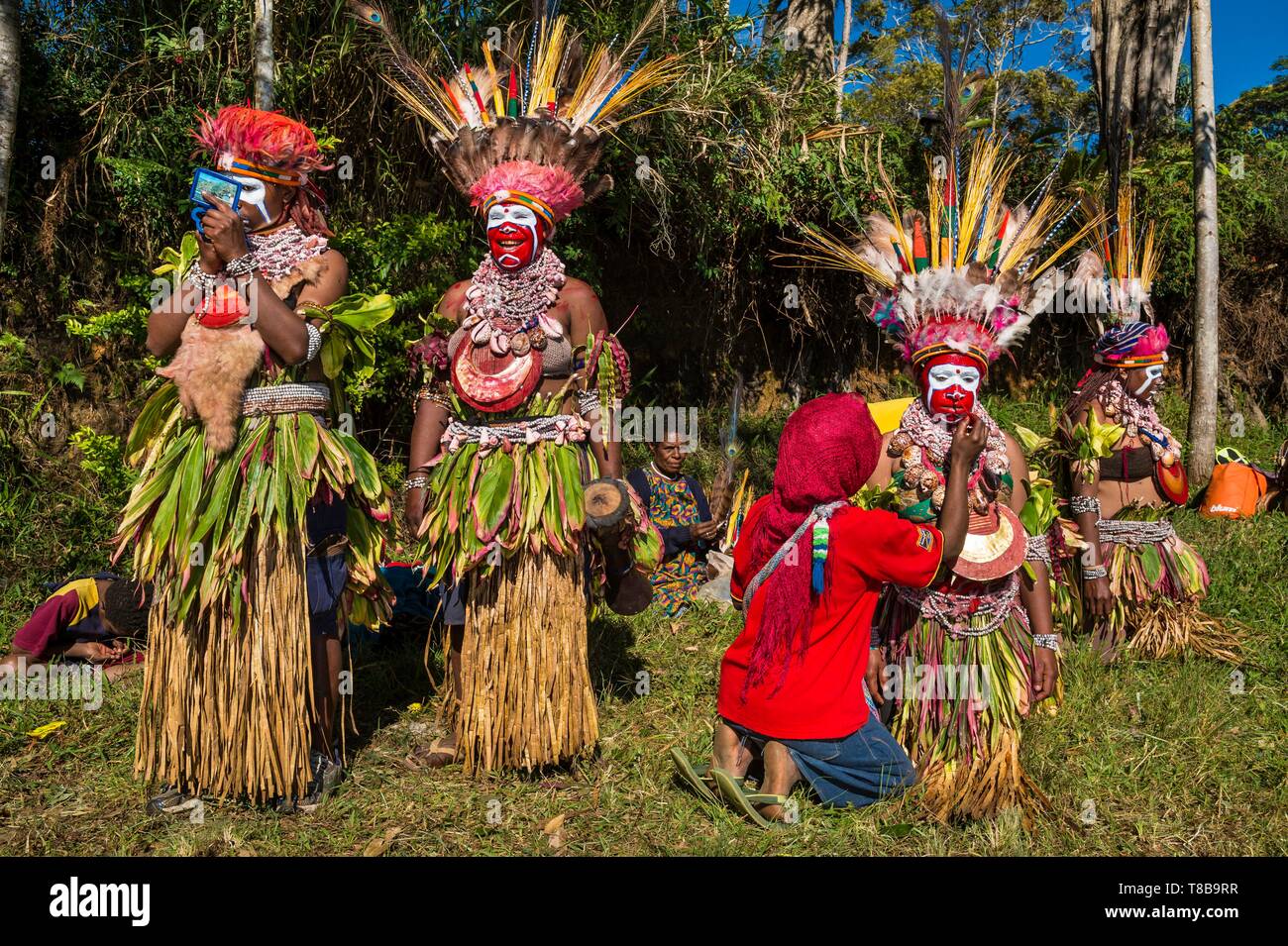
Traditional costume from papua hires stock photography and images Alamy
There are four primary colors used for bilum in traditional societies of Papua New Guinea: red, black, white, and yellow, which speak of the country's national identity since they constitute the national flag. These are traditional colors that have distinct local dialect names of indigenous communities. The colors blend into different bilum.
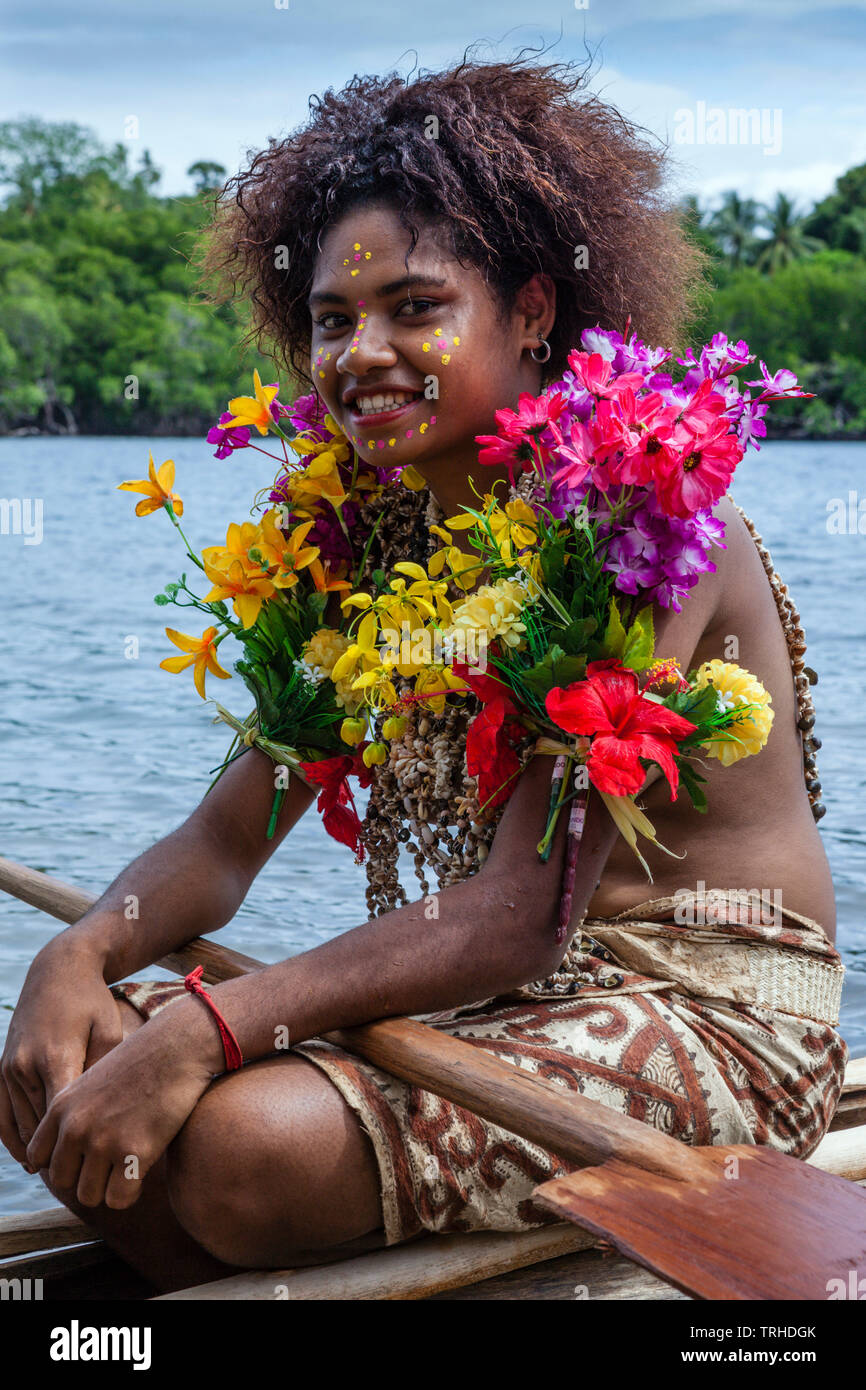
Traditional dress papua new guinea hires stock photography and images Alamy
(September 2021) Traditions Fire Dancers of the Baining Tribe. Bioma figures are wood-carved figures from Papua, New Guinea that have human forms but represent the spirit of animals, particularly those of wild pigs killed in organized hunts.

An indigenous Papua New Guinea woman in traditional dress for the village ceremony,
Sports and recreation coral reef Coral reef off the coast of Papua New Guinea. Competitive sports in Papua New Guinea were introduced by colonists and missionaries but have taken on a style of their own, with games often inspiring not only team but also village or district loyalty. Wealthy candidates for election often sponsor sporting teams.
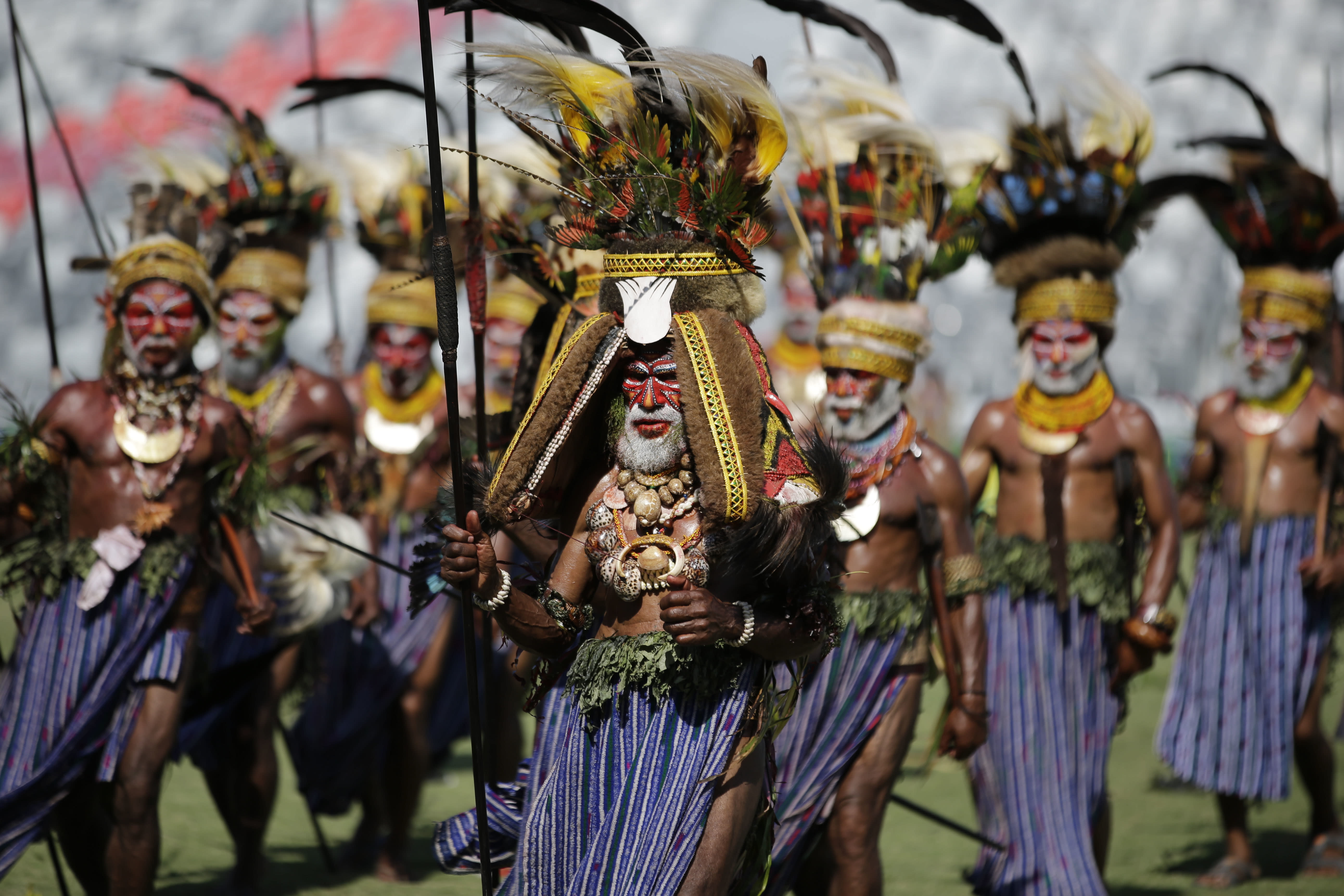
Key facts about APEC host Papua New Guinea
Australia supports economic empowerment of women through the fashion industry, including initiatives such as the Pacific Project-Papua New Guinea, which aims to develop the bilum sector, working with bilum producer groups in Goroka and Mount Hagen in the Highlands Region.